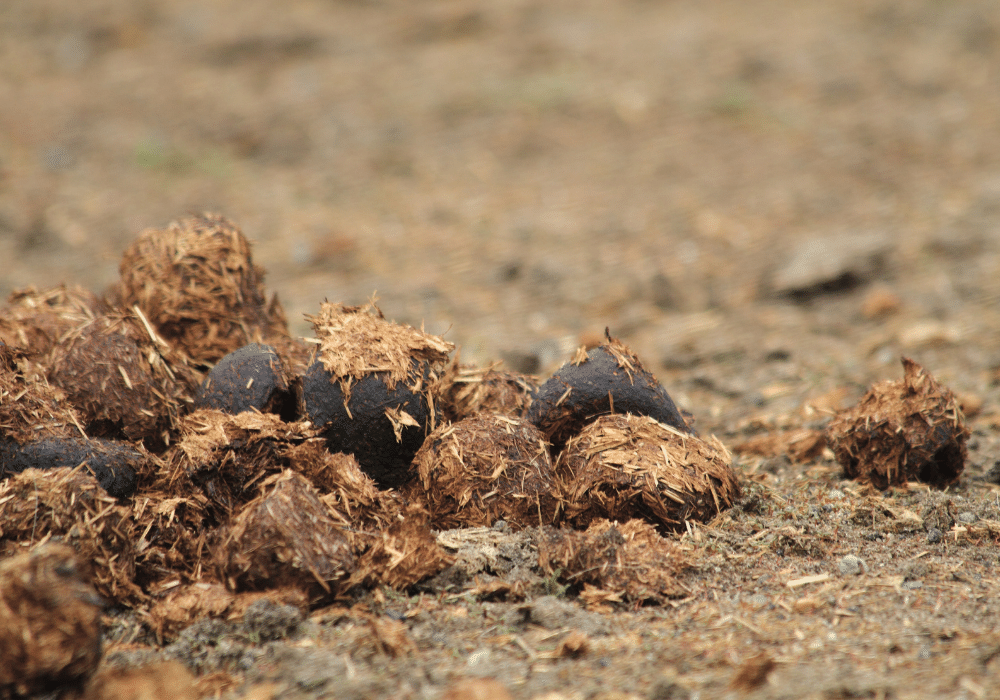An effective horse worming schedule is targeted based on the results of regular faecal worm egg counts, a horse’s individual circumstances and the season. With winter now upon us, it’s important to understand the most effective practices when it comes to worming your horse this season. With anthelmintic resistance already a widespread problem with potentially huge consequences, targeted worming is essential. This blog article discusses the importance of targeted, responsible worming and how to manage your horse’s worming programme this autumn.
What is Targeted Worming?
In the past, horse owners would apply a ‘blanket’ approach to worming, and this is still something often seen on large yards. Essentially, all horses on the premises receive a deworming treatment at the same time, regardless of their individual worm burdens or specific needs.
However, it is estimated that only a small proportion of treated horses will actually require worming, meaning many wormers are given unnecessarily. Worming unnecessarily can lead to an increase in anthelmintic resistance, a problem which is already widespread. Some yards or owners may also use the wrong wormer or an incorrect dosage, which will also contribute to wormer resistance.
Instead, carrying out regular worm egg counts and treating as necessary is recommended. This targeted worming approach has several benefits over traditional methods.
Targeted worming:
- Can save the owner money
- Decreases the risk of wormer resistance
- Is better for the horse
- Is better for the environment
What is Wormer Resistance?
Wormer resistance - or anthelmintic resistance - means that a high proportion of parasites are no longer killed by the wormer administered.
This has a few causes, but the most common is using wormers too frequently. The wormer kills susceptible worms before they reach maturity, meaning only those that are genetically resistant survive. They go on to breed with another partially resistant worm to produce resistant offspring.
Under-dosing can also lead to wormer resistance, as it helps worms that are already partially resistant to survive and breed.
If left unchecked, wormer resistance can render even the most potent deworming treatments ineffective, leaving horses vulnerable to the harmful effects of worms, which can include colic and irreversible internal damage.
Carrying out regular worm counts as part of your horse’s preventative care routine is best practice as it allows owners to assess whether their horse needs worming, and treat accordingly. This will slow the development of resistance, white rotating between different treatments can help prevent resistance from emerging in the first place.
The CANTER Initiative (Controlling ANTiparasitic resistance in Equines Responsibly) has a website with some useful information for horse owners, including advice on controlling parasites and assessing your horse’s risk profile.
Winter Worming for Horses: Controlling Tapeworm and Redworm
A strategic approach throughout the year is vital when it comes to effectively worming your horse, while also reducing wormer resistance. Winter is a critical period for targeted worming, as horses are more susceptible to certain types of worm during this season.
In winter, we should be targeting tapeworm, encysted small redworm and large redworm.
Tapeworm in Horses
Tapeworms live in the ileocecal junction between the small and large intestines, and they can cause irritation to the gut wall, as well as severe damage to the tissue. Tapeworms can cause impaction colic, because they physically block the passage of food through the horse’s intestine.
Tapeworms don’t reliably show up in a standard faecal worm egg count. Instead, owners must test using either a saliva test or a blood test. Saliva tests measure the antibodies to the tapeworm parasites present in a horse’s saliva, and owners can do the test themselves using a swab collection kit. This is then tested and scored to determine whether the horse needs worming for tapeworm.
Our clients who use our annual worm control package receive two Equisal tapeworm saliva tests, so they can test their horse for tapeworm. We will then prescribe a targeted wormer if the horse requires it.
Encysted Small Redworm
Encysted small redworms are another risk in winter, although these can be a problem throughout the year. They can cause diarrhoea and colic, and cannot be detected by a faecal worm egg count. We recommend treating your horse for this type of worm in winter, after a sustained period of cold weather (below 6 degrees celsius).
Large Redworm
Also known as strongyles, large redworms are a dangerous parasite that can cause severe internal bleeding, colic, diarrhea and rapid weight loss. Large redworms can be detected using a faecal worm egg count.
Check out our other blog article on How Often Should I Worm My Horse? for more information on worming.
Avonvale Equine Vet Practice Horse Worming Programme
It is best to follow a set horse worming programme throughout the year, which uses regular faecal worm egg counts to inform the frequency and type of worming. At Avonvale Equine Vet Practice, we offer a worm control package to our clients. This annual package includes four worm egg counts, a weigh tape, 2x Equisal tapeworm saliva tests and unlimited, up-to-date advice from our vets.
If you require any advice on autumn worming for your horse, or you would like to take advantage of our annual worm control package, please contact us on 01295 670 501.








